March 8, 2018 by Dean Bellefeuille

Dorothy had it right when she said, “There’s no place like home,” and 90 percent of seniors agree, according to AARP. The vast majority of older adults prefer to age in place in their own homes as opposed to moving to a nursing home or assisted living facility. But as increased care is needed, how can senior independence be maintained at home? (more…)
February 16, 2018 by Dean Bellefeuille
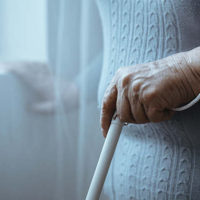
Impacting millions of Americans, vision loss is as varied as the individuals who experience it – from simply needing to don a pair of reading glasses to browse through the morning newspaper, to total blindness. And it’s even more common in older adults, with one in every three elders over age 65 having some sort of eye disease that impacts vision, such as glaucoma, cataracts, macular degeneration, and others. Thankfully, much like a lot of other challenging conditions, technology continues to explode with choices to improve total well-being for anyone experiencing vision problems. Just take a glance at a few of the vision enhancement tools that are now available: (more…)
February 12, 2018 by Dean Bellefeuille

It’s a sensitive topic to go over with aging parents, but one which has to be resolved sooner rather than later: managing senior finances. Many adult children are reluctant to ask about their parents’ financial matters until there is a desperate need, but initiating the discussion ahead of the need provides ample opportunity to ensure everything is in order. (more…)
February 8, 2018 by Dean Bellefeuille

It is always best to tell the truth, right? Yet there are times when some truths are better left unsaid, or at least worded more positively, particularly when communicating with senior parents. While we may have the very best of intentions in attempting to help older adults navigate life, we can help alleviate problems with hurt feelings in our senior parents by rethinking statements such as the following: (more…)
January 18, 2018 by Dean Bellefeuille
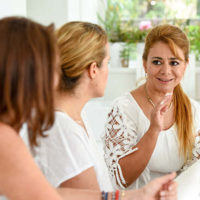
Do you recall how hard it could be when you were young to learn the concept of sharing with your brothers and sisters? Even though the importance of thinking about others’ feelings, and also being fair, was impressed upon us early on, it can still be a hurdle to lessen sibling squabbles when it comes to complicated decisions we confront in adulthood – such as the right way to fairly divide caregiving requirements for our aging parents. (more…)
January 11, 2018 by Dean Bellefeuille

“I do NOT have Alzheimer’s disease! There isn’t anything wrong with me!”
If you’ve ever heard a friend or family member with dementia frustratingly communicate this or perhaps a very similar sentiment, it’s possible you have believed that individual was merely in denial and not willing to accept a tough diagnosis. The truth is, however, that oftentimes people who have dementia are experiencing anosognosia – an unawareness of their impairment. (more…)
January 6, 2018 by Dean Bellefeuille
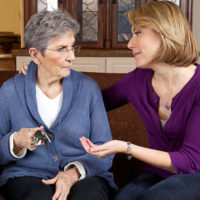
It is among the more tricky decisions we must confront in later years, and a remarkably delicate subject for adult children to initiate with their elder parents: surrendering the car keys. Driving a vehicle, while supplying an inherent sense of freedom and independence, can become significantly unsafe due to a number of conditions linked to growing older. And giving up that independence for safety’s sake can feel defeating. (more…)
December 21, 2017 by Dean Bellefeuille
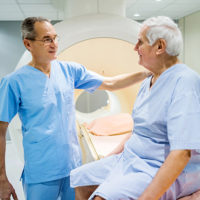
Most of us desire the most effective senior health care for our loved ones, but is it possible that on occasion, less is the most beneficial? As reported by a recent study published in Plos One by Dr. Martin Makary, professor of surgery and health policy at the Johns Hopkins University School of Medicine, a full 21% of medical care we receive is irrelevant – which means that millions of people put through various treatments, screenings and scans are obtaining little if any benefit. And these unwarranted senior health care services come at a cost: as much as $210 billion annually, as revealed by the National Academy of Medicine. (more…)
December 14, 2017 by Dean Bellefeuille
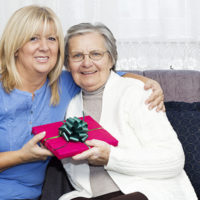
Living across the country from family makes it complicated to pay a visit to our older loved ones as often as we would like, but when the holiday season is here, families make an extra effort for time together – making it the perfect time to review a senior’s safety and wellbeing. There are many warning signs about senior safety that aren’t observed in weekly telephone conversations, emails, or even through Skype, but which often become very clear when the family gathers together for the holidays. (more…)
December 7, 2017 by Dean Bellefeuille

Looking at the holiday season through the lens of Alzheimer’s disease can seem to be anything but merry and bright. Family caregivers may be bogged down with care duties, and the disruption to routine can result in more distress for a person experiencing the impact of dementia. (more…)










